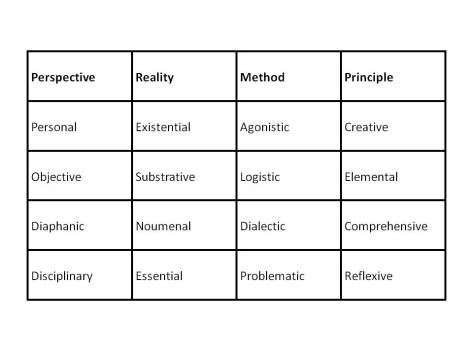 What are the different stances towards truth? I can think of four: relativism, pluralism, dogmatism, and skepticism.
What are the different stances towards truth? I can think of four: relativism, pluralism, dogmatism, and skepticism.
In Relativism, truths are relative to the individual, and may be associated with their personal perspective. Truths are necessarily different as individuals are different and cannot be ranked as to their correctness between individuals.
In Pluralism, truths are separate and may be combined but usually cannot be unified under one overarching truth. Truths are pragmatically different and are true in principle or function.
In Dogmatism or Absolutism, there is one truth, whether we have access to it or not. Truth is absolute and necessarily consistent with itself.
In Skepticism, there may be no absolute truths. Truth is always in doubt and there is no certainty.
I believe that few if any of us are purists with respect to any of these stances towards truth. Each of us combines these four stances into a filter that we use to adopt and maintain our personal ensemble of truths. Some of us may be highly skeptical, with a little dogmatism about our skepticism, plus a bit of relativism and pluralism thrown in for good measure. And so on. Our filter will change depending on how we perceive the current truth of those stances.
Similarly, social organizations may also operate the same way as individuals in constructing a filter towards truth. Whether the organization’s filter arises as an average of the individual’s filters, or from some inherent property of the organization, remains open.
Whether there is one transcendent truth or possibly no absolute truths depends on your valuation of dogmatism and skepticism, respectively. And thus it doesn’t depend on what you or anyone thinks at all.
Notes:
Perhaps Absolutism would be a better choice than dogmatism in the diagram.
The post The One and the Many may be used to develop these stances better.
[*7.30]
<>


